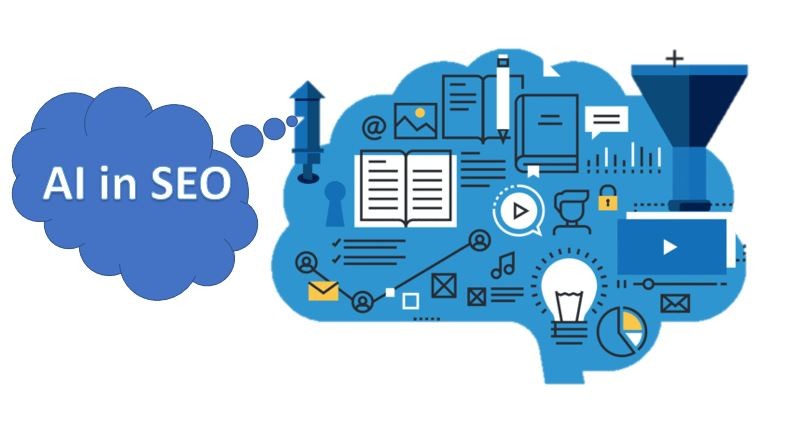Table of Contents
Introduction
In today’s digital landscape, search engine optimization (AI Powered SEO) is more crucial than ever for businesses looking to establish a strong online presence and attract organic traffic to their websites. However, with the rise of artificial intelligence (AI) and machine learning algorithms, the SEO landscape is constantly evolving, presenting new challenges and opportunities for marketers. In this comprehensive guide, we will explore the impact of AI on SEO, strategies for navigating algorithm changes, and techniques for maximizing organic traffic in the age of AI.

Understanding AI Powered SEO
To comprehend the role of AI in SEO, it’s essential to first understand how search algorithms work. Search engines like Google use complex algorithms to analyze and rank web pages based on various factors such as relevance, authority, and user experience. Traditionally, these algorithms relied on predefined rules and signals to determine rankings. However, with the advent of AI and machine learning, search engines are now capable of learning and adapting to user behavior in real-time, leading to more personalized and contextually relevant search results.
The Evolution of Search Engine Algorithms
AI-powered algorithms have transformed the way search engines interpret and rank content. Google’s RankBrain, for example, uses machine learning to understand the context and intent behind search queries, allowing it to deliver more accurate and tailored results. Similarly, algorithms like BERT (Bidirectional Encoder Representations from Transformers) enable search engines to better understand the nuances of natural language, leading to improved semantic search capabilities.
These advancements have significant implications for SEO practitioners, as they necessitate a shift towards creating high-quality, user-centric content that aligns with the evolving preferences of search engine algorithms.
Navigating Algorithm Changes
One of the biggest challenges for SEO professionals in the age of AI is keeping pace with algorithm updates and changes. Unlike traditional algorithms, which operated on fixed rules, AI-powered algorithms are dynamic and continuously evolving based on new data and user interactions. This means that SEO strategies that were effective in the past may no longer yield the same results, requiring marketers to adapt and innovate to stay ahead of the curve.
To navigate algorithm changes effectively, SEO practitioners should focus on the following strategies:
- Stay Informed: Keep abreast of industry news and updates to stay informed about algorithm changes and their potential impact on search rankings.
- Focus on Quality: Prioritize creating high-quality, authoritative content that provides value to users and aligns with the intent behind search queries.
- Optimize for User Experience: Pay attention to factors such as page speed, mobile-friendliness, and navigation to ensure a seamless and intuitive user experience.
- Diversify Your Strategy: Relying solely on one aspect of SEO, such as keyword optimization, is no longer sufficient. Instead, diversify your strategy to include elements such as content marketing, link building, and social media engagement.

Maximizing Organic Traffic
While navigating AI-powered algorithms presents its challenges, it also offers opportunities for savvy marketers to maximize organic traffic and visibility. By understanding the underlying principles of AI and search algorithms, businesses can develop strategies that not only satisfy the requirements of search engines but also resonate with their target audience.
Some effective techniques for maximizing organic traffic in the age of AI include:
- Semantic Keyword Research: Instead of focusing solely on individual keywords, conduct semantic keyword research to identify related topics and concepts that align with user intent.
- Optimize for Voice Search: With the increasing prevalence of voice-activated devices and virtual assistants, optimizing content for voice search queries can help businesses capture a larger share of organic traffic.
- Implement Structured Data Markup: Utilize structured data markup, such as schema.org, to provide search engines with additional context about your content, leading to enhanced visibility in search results.
- Prioritize User Engagement Metrics: In addition to traditional SEO metrics such as keyword rankings and backlinks, prioritize user engagement metrics such as dwell time, click-through rate, and bounce rate, as these factors play a significant role in determining search rankings.
By adopting a holistic approach to AI powered SEO that combines technical expertise, content strategy, and user experience optimization, businesses can position themselves for success in the age of AI and maximize their organic traffic potential.

Conclusion
In conclusion, the rise of AI has fundamentally transformed the AI Powered SEO landscape, ushering in a new era of personalized and contextually relevant search results. While navigating AI-powered algorithms presents its challenges, it also offers opportunities for businesses to maximize their organic traffic and visibility by understanding the underlying principles of AI and search algorithms.
By staying informed about algorithm changes, prioritizing quality content and user experience, and diversifying their SEO strategy, businesses can navigate the complexities of the modern digital landscape and achieve sustainable success in driving organic traffic to their websites.
